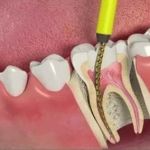Bad breath, also known as halitosis, is a common problem that can be both uncomfortable and embarrassing. Whether it’s a temporary issue after a meal or a more persistent condition, bad breath can affect your confidence and social interactions. The good news is that preventing bad breath is entirely possible with the right habits and products. In this article, we will explore effective ways to prevent bad breath, ranging from good oral hygiene practices to lifestyle changes and dietary adjustments.
Bad breath typically occurs when food particles break down in your mouth or when bacteria in the mouth produce sulfur compounds. This can be exacerbated by poor oral hygiene, certain foods, or underlying health conditions. The key to preventing bad breath is to maintain proper oral care and be mindful of your daily habits. Let’s dive into some simple yet effective strategies for combating bad breath and keeping your smile fresh.
1. Brush and Floss Regularly to Prevent Bad Breath
One of the most effective ways to prevent bad breath is maintaining a thorough oral hygiene routine. Brushing your teeth at least twice a day and flossing daily helps to remove food particles and plaque that can lead to bad breath. Plaque is a sticky film of bacteria that can build up on your teeth and gums, creating an environment where bacteria thrive.
When you brush, make sure to brush the tongue as well, as it can harbor bacteria that contribute to bad breath. Using a fluoride toothpaste helps fight bacteria and strengthens tooth enamel, preventing cavities and other dental issues that could lead to foul-smelling breath.
Flossing is just as important because it removes food particles and plaque from between your teeth, areas that your toothbrush can’t reach. Regular flossing helps prevent gum disease, which is a major cause of persistent bad breath.
Make sure to use a soft-bristled toothbrush and replace it every three to four months, or sooner if the bristles are frayed. This simple habit can go a long way in maintaining fresh breath and overall oral health.
2. Stay Hydrated: Drink Plenty of Water
Dry mouth is a common cause of bad breath. When your mouth doesn’t produce enough saliva, it can’t wash away food particles and bacteria that lead to foul-smelling breath. Saliva also helps neutralize acids in the mouth and reduces the growth of harmful bacteria.
To prevent dry mouth and the bad breath associated with it, make sure to stay hydrated throughout the day. Drinking water not only helps keep your mouth moist but also promotes healthy saliva production. Sipping water regularly, especially after meals, can help rinse away any lingering food particles.
If you’re someone who experiences chronic dry mouth, consider using a saliva-stimulating mouthwash or chewing sugar-free gum. Both of these can help keep your mouth moist and reduce bad breath throughout the day.
3. Avoid Certain Foods That Contribute to Bad Breath
What you eat plays a significant role in the freshness of your breath. Certain foods, such as garlic, onions, and spicy dishes, are notorious for causing bad breath. These foods contain sulfur compounds that are absorbed into your bloodstream and released through your lungs when you breathe.
While these foods may contribute to bad breath, they can also have health benefits, so it’s not necessary to completely eliminate them. Instead, consider balancing your diet with foods that promote fresh breath. For example, crunchy fruits and vegetables like apples, carrots, and celery help stimulate saliva production and naturally clean your teeth.
Additionally, foods high in fiber can help to keep your digestive system healthy, which in turn reduces the likelihood of bad breath caused by gastrointestinal issues. Avoiding excessive alcohol and coffee, which can also contribute to dry mouth, can also help prevent bad breath.
4. Use Mouthwash to Freshen Your Breath
Incorporating a good mouthwash into your daily routine is another effective way to prevent bad breath. Mouthwash not only freshens your breath but also helps kill the bacteria in your mouth that cause foul odors. Choose a mouthwash that is alcohol-free, as alcohol can dry out your mouth and worsen bad breath.
Mouthwashes that contain antibacterial agents, such as chlorhexidine or cetylpyridinium chloride, are particularly effective at reducing the bacteria responsible for bad breath. Rinsing with mouthwash after brushing and flossing can help ensure that your mouth stays fresh and free of odor-causing bacteria.
If you’re looking for a more natural approach, essential oils like tea tree oil, peppermint, or eucalyptus can also be used to freshen your breath and kill bacteria. Simply dilute a few drops of essential oil in water and use it as a mouth rinse.
5. Regular Dental Checkups
Regular visits to the dentist are essential not only for maintaining overall dental health but also for preventing bad breath. Your dentist can identify any underlying oral health issues, such as gum disease, cavities, or infected teeth, which could be contributing to persistent bad breath.
Professional cleanings by your dentist or hygienist help remove plaque and tartar buildup that you might not be able to reach with regular brushing and flossing. If you suffer from chronic bad breath, your dentist may also recommend additional treatments, such as prescription mouthwashes or fluoride treatments, to address the root cause of the issue.
Be sure to schedule a dental checkup at least once a year or more frequently if you have ongoing concerns about your breath. Your dentist is your best resource for maintaining fresh breath and a healthy smile.
6. Consider Using a Tongue Scraper
The tongue can often harbor bacteria that contribute to bad breath. A tongue scraper is a simple and effective tool for removing this buildup. By gently scraping your tongue each time you brush your teeth, you can reduce the amount of bacteria in your mouth and maintain fresher breath.
To use a tongue scraper, place it at the back of your tongue and gently scrape it forward. Repeat this process a few times, rinsing the scraper after each pass. Many toothbrushes come with a built-in tongue cleaner, but a dedicated tongue scraper may provide a more thorough clean.
Using a tongue scraper as part of your daily oral hygiene routine can make a noticeable difference in the freshness of your breath and contribute to better overall oral health.
In conclusion, preventing bad breath is achievable with the right combination of good oral hygiene, healthy habits, and dietary adjustments. By brushing and flossing regularly, staying hydrated, avoiding bad-breath-causing foods, using mouthwash, and maintaining regular dental checkups, you can keep your breath fresh and your confidence high. If you want to further improve your breath, consider incorporating a tongue scraper into your routine and exploring natural solutions like aromatic mouthwashes or essential oils.
For more tips on maintaining fresh breath and overall oral health, visit Dentistry Toothtruth for expert advice and trusted products to keep your smile at its best.







 Maddison Ave Dental4.0 (83 review)
Maddison Ave Dental4.0 (83 review) Elite Dental Specialists, Joliet, IL4.0 (305 review)
Elite Dental Specialists, Joliet, IL4.0 (305 review) Brunswick Dental Group3.0 (71 review)
Brunswick Dental Group3.0 (71 review) San Fernando & Pacoima Family Dental4.0 (55 review)
San Fernando & Pacoima Family Dental4.0 (55 review) Mid-County Endodontic Group, P.A.5.0 (187 review)
Mid-County Endodontic Group, P.A.5.0 (187 review) Clove Dental Camarillo4.0 (225 review)
Clove Dental Camarillo4.0 (225 review) The Importance of Oral Health Education During Pregnancy for a Healthy Pregnancy
The Importance of Oral Health Education During Pregnancy for a Healthy Pregnancy Best Tips for Brushing Your Teeth Properly for Healthy Gums: Essential Techniques for Oral Health
Best Tips for Brushing Your Teeth Properly for Healthy Gums: Essential Techniques for Oral Health Why Skipping Dental Checkups Can Lead to Bigger Oral Health Problems
Why Skipping Dental Checkups Can Lead to Bigger Oral Health Problems Advantages of Porcelain Dental Restorations
Advantages of Porcelain Dental Restorations How Can Diabetes Cause Tooth and Gum Problems? Preventing and Managing Oral Health Issues
How Can Diabetes Cause Tooth and Gum Problems? Preventing and Managing Oral Health Issues Healthy Habits for Promoting Good Oral Health and Hygiene: Tips for a Healthy Smile
Healthy Habits for Promoting Good Oral Health and Hygiene: Tips for a Healthy Smile